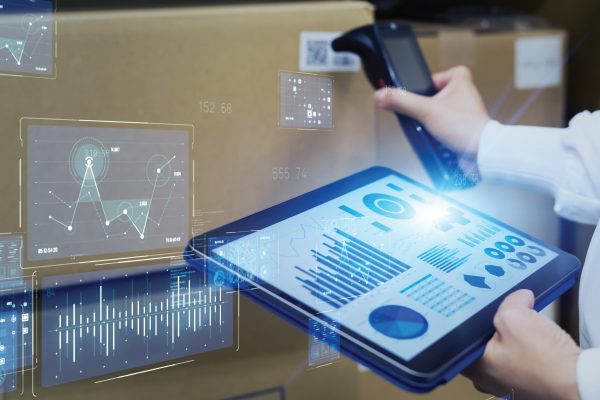‘Let’s design a culture of digital thinking’ As digitisation transforms businesses, processes and functions, the need of the hour is for people to adopt the change and adapt to the digital era. Claudio Scandella, CEO, ECU Worldwide outlines the digital roadmap
In this age of technological disruption, all organisations need to be digital in order to be future-ready. The digital plan involves developing digital capabilities in which a company’s structures, people, processes and tools are in sync, and aligned with the organisation’s goals. While transformed processes, talent engagement and business models are important in delivering value, digital tools are solid enablers in fulfilment of these objectives. Optimum usage of data, process digitalisation and employee enablement promote data-driven decision-making and results in greater performance improvement and overall operational transparency with logistics technology.
But the most important aspect of this transformation is the digital orientation of employees — this is critical for a company to be able to respond to the ever-evolving markets, customers and stakeholders.
Leadership is key
When an organisation revises its capabilities to achieve digital benefits, a top to bottom approach is important. The need for people to adopt new processes and adapt to digital culture can be a challenge. Often, the cultural shift is the hardest step in digital transformation. Factors such as interlocking set of goals, roles, processes, values, communications practices, attitudes and assumptions — all need to be accounted for when creating a digital road map for the company.
We need to support our employees to adapt to work-place requirements and train them extensively. As digitalisation progresses, the scope of jobs will change and some will even disappear. This is relevant not just to our company, it is a scenario that affects all industries everywhere. As leaders and business owners, we have a moral and ethical responsibility to support our employees to transform their capabilities.
At the same time, no one should sit back and wait for the company to enable the new learning. Every single employee has to drive his or her astuteness, ownership, transformation, education, etc. It would be foolish — to use a strong word — to adopt a ‘wait and see’ attitude, instead of taking responsibility to ensure our own competitiveness in the future digital age.
Inspiring talent
Providing employees with resources and opportunities to develop their digital acumen and empowering them towards the digital vision requires training on forward thinking and enhancing their collaborative skills. Some employees may be naturally inclined and interested in new digital solutions and to change their work processes. Others need to be guided with a thorough process similar to a ‘Change Management’ approach, where the leaders make the employees understand why a change is necessary and create a sense of urgency. This can be followed by addressing the fears and obstacles to change, by including the employees in the discussion and helping them to overcome their perceived limitations.
It is important for leaders to can bring in the company’s perspective, encourage active participation, in the discussion, and also establish a personal rapport and relationship with their staff based on mutual trust.
Inculcating ownership
Employees must be encouraged to be more ‘entrepreneurial’ in their approach, to perform functions in their area not like an employee, but like an owner. The customer could either be internal or external, but the approach of the employee should be that of a stakeholder, with an attitude that reflect their sense of ownership.
Digitalisation by itself does not change our management processes. We still need sound strategies, policies, goals, budgets, processes and performance management. This can be supported by a culture of entrepreneurship where ‘ownership and accountability’ is not only with the manager but every employee is enabled to contribute.
A cultural change
In the future, we will see newer digital products and digitalisation of existing business models. This movement will take us beyond existing business needs and will foster new innovative products and services that cater to changing business needs.
The culture of Google and Facebook is different from that of Nestle or ECU. What works well in one company doesn’t necessarily work in another due to the existing culture, history, industry, etc. Many companies I visit and read about have excellent programs and initiatives, but you always need to look at how you can apply it in your environment. The copy-paste template just doesn’t work; what really works is a home-grown culture of innovation, adaptation and continuous aspiration for excellence.
That is the path that ECU Worldwide is on.














